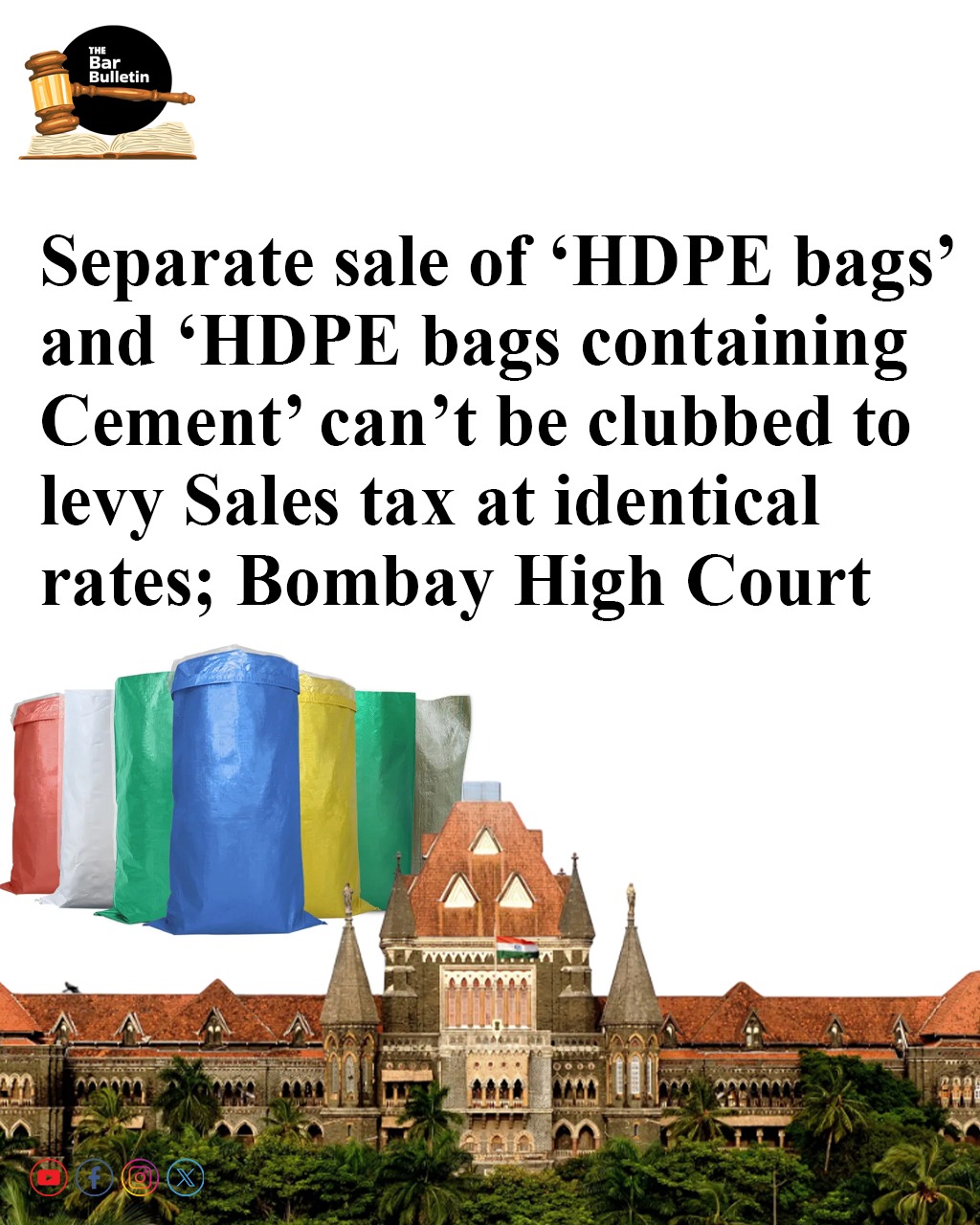Answering a question concerning the express and independent contract for the sale of HDPE bags in which the cement manufacturer had sold its cement, the Bombay High Court clarified that the transaction of sale of cement by the respondent does consist of a separate sale of cement as well as a separate sale of the packing material (HDPE bags) housing the cement, with respective sale considerations for the product and the packing material separately. The Court also reiterated that the mere fact that the consideration for the packing is merged with the consideration for the product does not make the sale of the packing an integral part of the sale of the product.
The Court found that the HDPE bags used to pack the cement were a distinct commodity with their own identity and were classified separately; there was no chemical or physical change in the packing either at the time of packing or at the time of use of the contents; the packing is capable of being reused after the contents have been consumed; and there was evidence of reuse or resale, which was not challenged by the revenue. Further, the Court emphasized that the HDPE bags were used to pack the cement for ease of transportation and convenience.
The Court strongly asserted that once there was an independent and separate sale of the HDPE bags in which the cement was sold, there is no question of levying any sales tax at the same rate as that levied on cement. Therefore, the issue of whether Section 15A of the Bombay Sales Tax Act, 1959, is a charging Section or merely declares the rate of tax is rendered academic, and the Court answered the reference in favour of the manufacturer taxpayer.
Reference was made to the decision of the Apex Court in the case of Raj Sheel vs State of Andhra Pradesh [Civil Appeal Nos. 1868-75 of 1986 dated May 16, 1989], where it was held that a transaction of sale may consist of a sale of the product and a separate sale of the container housing the product, with respective sale considerations for the product and the container separately; or it may consist of a sale of the product and a sale of the container but both sales being conceived of as integrated components of a single sale transaction; or, it may consist of a sale of the product with the transfer of the container without any sale consideration therefor.
This Division Bench comprising Justice M.S. Sonak and Justice Jitendra Jain observed that the Special Bench of the Sales Tax Tribunal has rightly recorded that the ACCL produced certificates received from stockists/customers, a set of sale bills issued by ACCL, copies of the trial balance showing separate account codes for the sale of cement, and an audited certificate certifying the separate sale of packing materials. The Bench added that the Tribunal’s findings of fact that the ACCL was involved in the sale of the packing material, i.e., the HDPE bags, separately and independently of the packed product, i.e., cement, are not vitiated by any perversity.
In this case, the Respondent (ACCL), a cement manufacturer, was subjected to assessment, holding that ACCL had not effected the separate activity of reselling of packing material but had used the entire packing material in the process of manufacturing of cement, and the AO denied the ACCL’s claim of resales. On appeal, the ACCL was granted a refund of Rs. 11.39 lacs on account of the claim of resale of the HDPE bags in which the manufactured cement was sold. However, this relief granted by the Deputy Commissioner (Appeals) was withdrawn by the Additional Commissioner, resulting in the withdrawal of other benefits and consequential demand of Rs. 1.81 crores. On further appeal, the Special Bench of the Sales Tax Tribunal answered in favour of the manufacturer and held the ACCL to be entitled to a resale claim of HDPE bags.
Case Relied On:
Raj Sheel vs State of Andhra Pradesh [Civil Appeal Nos. 1868-75 of 1986 dated May 16, 1989]
Appearances:
Advocates Jyoti Chavan and Himanshu Takke, for the Applicants
Advocate P. C. Joshi and Piyush Shah, for the Responden

